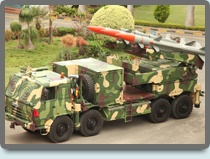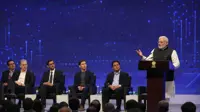Integrated power producer Tata Power Ltd today announced the sale of its defence business to another group company Tata Advance Systems for Rs2,230 crore ($342.21 million), as part of the Tata Group’s plans to monetise non-core assets and improve efficiency.

The board of directors of Tata Power today approved the sale of its defense business to Tata Advance Systems Limited, a wholly-owned subsidiary of Tata Sons, at an enterprise value of Rs2,230 crore, out of which Rs1,040 crore will be payable at the time of closing and Rs1,190 crore on achieving certain milestones, the company stated in a release.
The sale, however, is subject to government and other approvals as also shareholders’ approval, the release added.
Tata Power’s defence unit, Strategic Engineering Division, manufactures and assembles missile launchers, and electronic warfare equipment, night vision devices and gun systems.
The Strategic Engineering Division (SED), a non-core defence electronics division of Tata Power, is engaged in the business of design, development, production, integration, supply and life cycle support of mission critical defence systems. Key products include manufacturing and assembling missile launchers, electronic warfare, night vision systems and gun systems.
The division has been awarded programmes of national importance such as missile launchers for Pinaka MBRL / Akash for Army and Air Force, strategic missile launcher / MR-SAM launchers, electronic warfare and airfield infrastructure modernisation.
SED has three dedicated manufacturing units, viz, Bangalore Electronic City, Vemagal in Karnataka (under construction) and an SEZ near Bengaluru (under construction).
“SED is a non-core business division of Tata Power. The Company has been working on charting its next phase of growth, for which monetization of non- core assets is a critical step. This sale will also help in reduction of leverage,” Anil Sardana, CEO and managing director of Tata Power, said.
The sale of SED to the Tata Group’s aerospace and defence arm comes at a time when the salt-to-software conglomerate is mulling ways to cut cross holdings in various group companies to consolidate the business.
Recently, chairman N Chandrasekaran told an internal company magazine that many group companies needed to be streamlined, without losing their entrepreneurial spirit.
 The board of directors of Tata Power today approved the sale of its defense business to Tata Advance Systems Limited, a wholly-owned subsidiary of Tata Sons, at an enterprise value of Rs2,230 crore, out of which Rs1,040 crore will be payable at the time of closing and Rs1,190 crore on achieving certain milestones, the company stated in a release.
The board of directors of Tata Power today approved the sale of its defense business to Tata Advance Systems Limited, a wholly-owned subsidiary of Tata Sons, at an enterprise value of Rs2,230 crore, out of which Rs1,040 crore will be payable at the time of closing and Rs1,190 crore on achieving certain milestones, the company stated in a release.



















